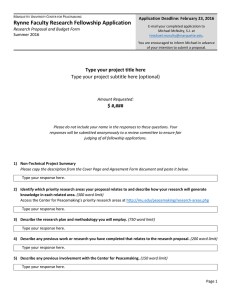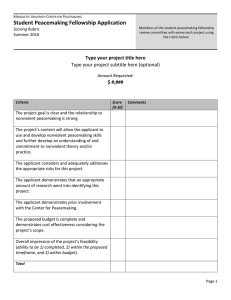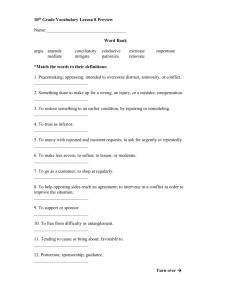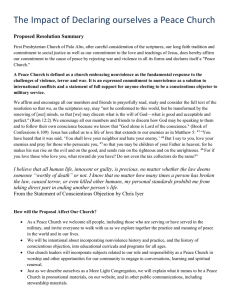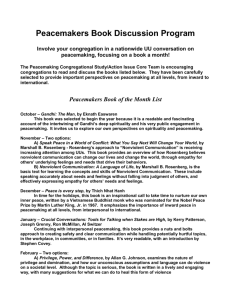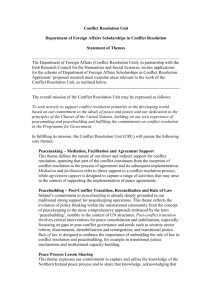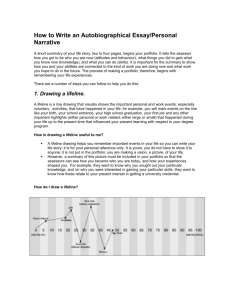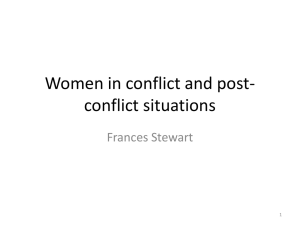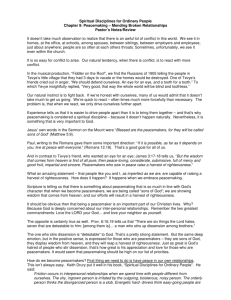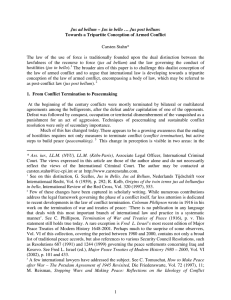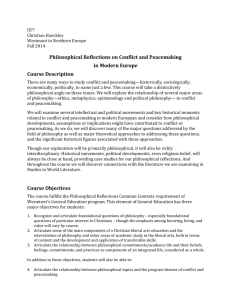Geoff Dabelko (Presentation) - Woodrow Wilson International Center
advertisement
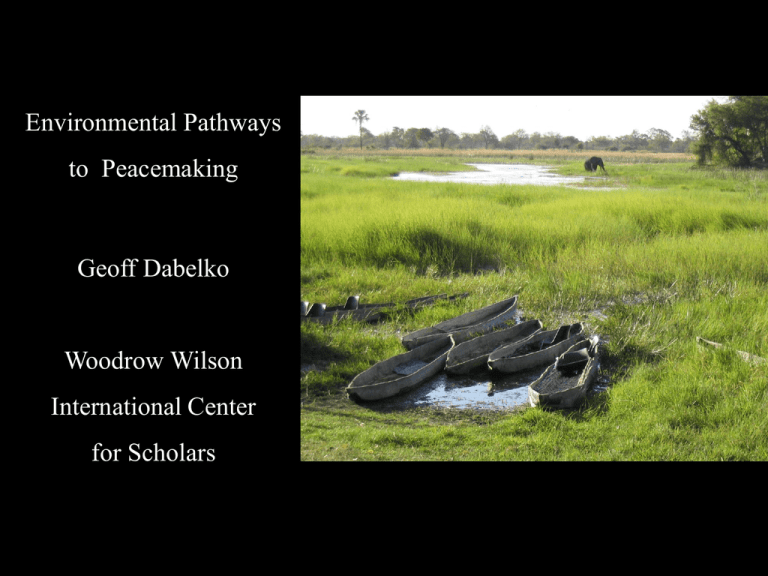
Environmental Pathways to Peacemaking Geoff Dabelko Woodrow Wilson International Center for Scholars • Propose turning the environment and conflict thesis on its head • Can we exploit environmental problems strategically as part of broader peacemaking efforts? Environmental Pathways to Peace? • Can we utilize the logic of environmental interdependence to talk across lines of tension? – State to state – Civil society to civil society • Use cooperative efforts and dialogue to manage environmental resources as a way to transform insecurities and create more peaceful relations between parties in dispute • Help overcome political tensions through interaction, confidence building, and technical cooperation Environmental Pathways Along the Conflict Continuum 1. Environment as conflict prevention 2. Environment as lifeline in times of conflict 3. Environment as essential ingredient to peace agreement 4. Environment as post-conflict trust builder Environmental Cooperation as Conflict Prevention Nile Basin Initiative 1,700 State-to-State Water Interactions in Transboundary Basins, 1946-1999 International Water Treaty Military Support 157 7 436 Non-military Agreement Verbal Suppport 628 96 Neutral 414 Verbal Hostility Hostile Acts 56 37 Military Acts Formal War 0 Source: Adapted from Wolf et al. 2003 in Water Policy Environment as Lifeline in Times of Conflict Lifeline in times of conflict and tension • Arctic Military Environment Cooperation (AMEC) • Picnic Table Talks • Environmental management - HELCOM Environmental Engagement to Gain New Strategic Partners • CENTCOM in Central Asia • US Military-Military bilaterals with Vietnam, India, Thailand, Central American countries Environment as Essential Ingredient to Achieving Peace Peru – Ecuador border Cordillera del Condor Transboundary Protected Area Water didn’t get you into this mess but… – Palestine-Israel – India-Pakistan Environment as Post-Conflict Confidence Builder Peace Parks UNEP Post-Conflict Assessment Unit Some Key Challenges • Transparency and participation – finding the right mix and the right time • Doing environmental peacemaking without calling it environmental peacemaking or environmental security • Integrating development • Variable chances of success along conflict continuum Some Key Challenges • Overcoming institutional barriers to cooperation among agencies • Improving donor coordination and duration of commitment • Size matters for donors and recipients • Shortage of capable facilitators • Staying behind the scenes – U.S. can’t always be out front • How to demonstrate success if success is a null case
